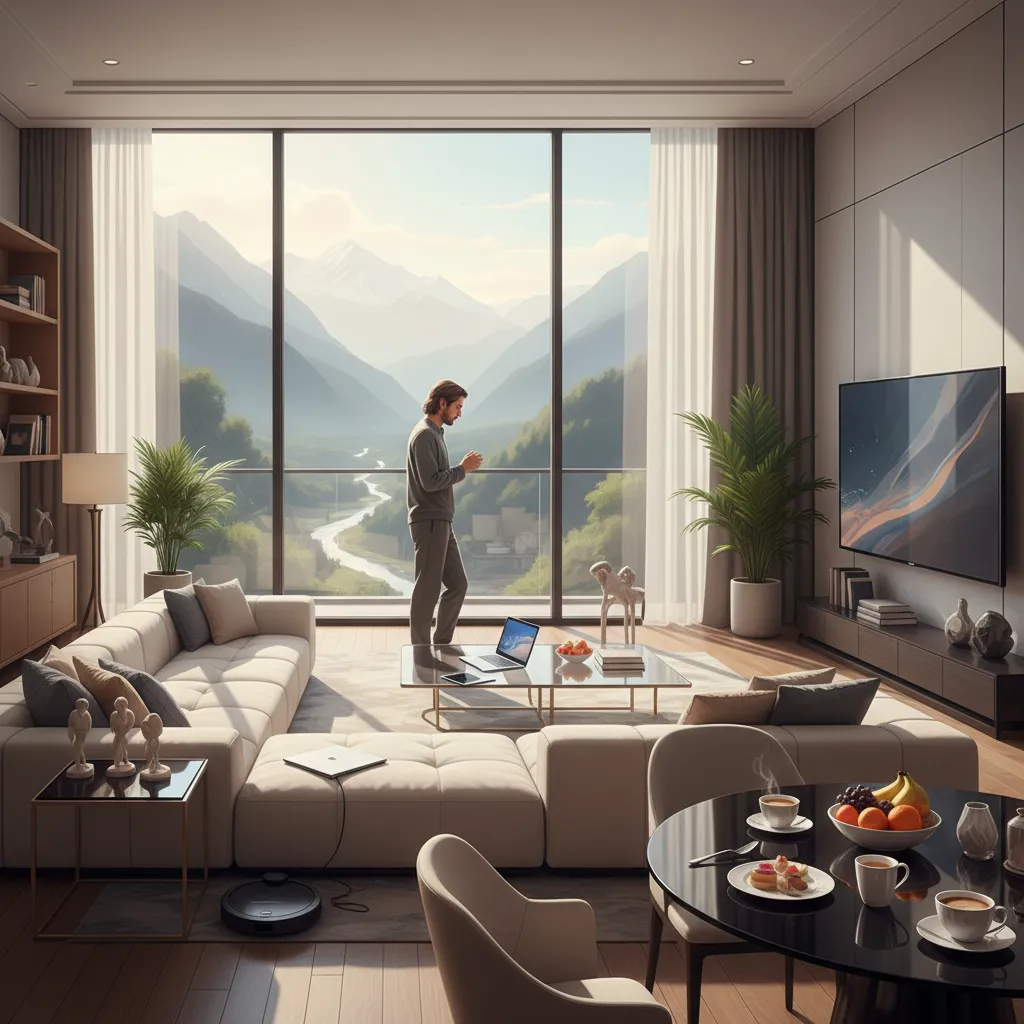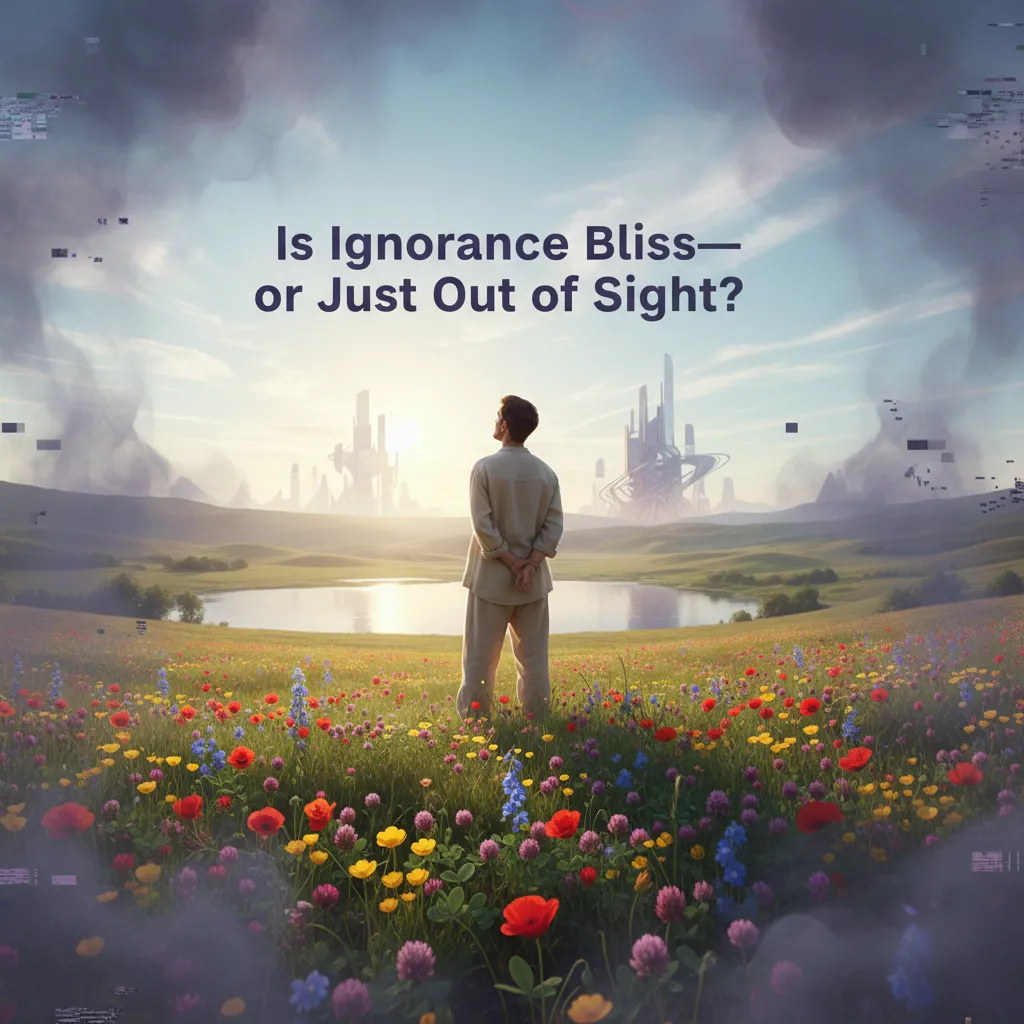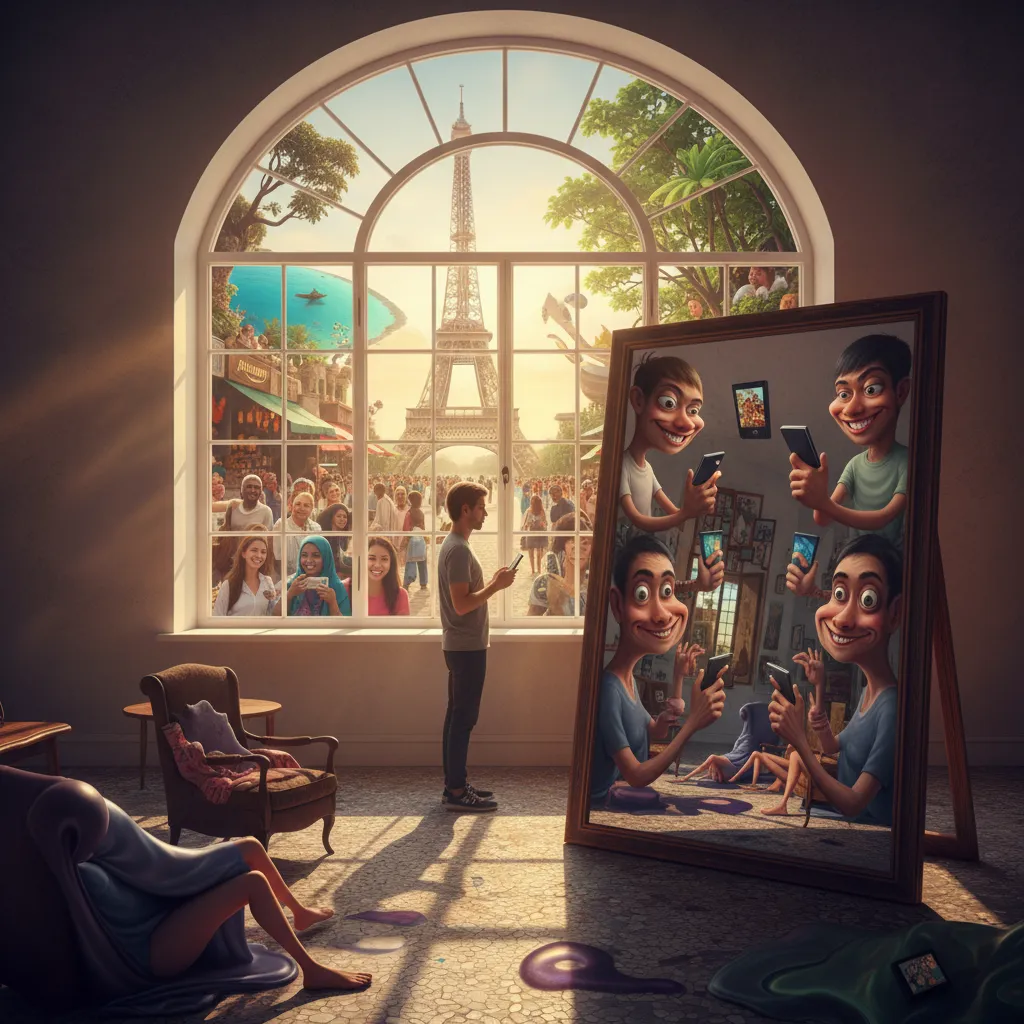Let me confess: I once convinced myself the world was ending after binge-scrolling news in bed at 2 a.m. It’s wild—despite living in an era where hot showers and antibiotics are taken for granted, my anxiety sometimes rivals that of a medieval peasant surrounded by plagues. Is this just me, or does the information age amplify our worries even as it solves so many old problems? Grab your beverage of choice—let’s challenge some assumptions about why modern mental health feels so fragile.
Why Does Life Feel Hard When We Have It So Good?
It’s a paradox of our time: we are surrounded by comforts and conveniences that people in the past could only dream of, yet rates of anxiety, depression, and other mental health conditions are higher than ever. The Mental Health Crisis 2025 is not just a headline—it’s a reality for millions. You might find yourself asking, “Why does life feel so hard when, objectively, we have it so good?”
Think back to the Middle Ages or even the 1700s. Daily life was a constant struggle. People faced threats from disease, hunger, and violence. There were no antibiotics, no hot showers, and no modern medicine. Survival was uncertain, and comfort was rare. Today, you have access to advanced healthcare, instant communication, and endless entertainment at your fingertips. Yet, despite these advances, many people feel overwhelmed and emotionally exhausted.
"In some ways we're living in the best time in human history and in other ways it just looks so Bleak some days."
This quote captures the strange contradiction of our era. On one hand, we enjoy unprecedented safety and convenience. On the other, we are in the midst of a global mental health crisis. According to the World Health Organization, more than 1 billion people worldwide lived with mental health disorders in 2021. That same year, 727,000 people died by suicide. These mental health statistics are staggering, especially when you consider how much easier daily life is compared to centuries past.
So, what’s going on? Why does inner turmoil seem to grow even as physical hardship fades? One reason is that modern life, while comfortable, brings its own set of pressures. You are constantly bombarded by information—news, social media, and endless notifications. This flood of knowledge can make the world feel overwhelming and even frightening. In the past, people worried about immediate, tangible threats. Today, you might find yourself anxious about global issues, future uncertainties, or even comparing your life to others online.
Another factor is the loss of clear purpose. In the Middle Ages, survival and community were central. Today, with basic needs met, you may struggle to find meaning in a world that moves quickly and values productivity over connection. The result is a sense of emptiness or restlessness, even when all your material needs are satisfied.
- Technological Comforts: Hot showers, antibiotics, and smartphones have made life easier, but haven’t brought emotional calm.
- Constant Information: The nonstop stream of news and updates can fuel anxiety and make problems feel larger than life.
- Social Comparison: Social media creates unrealistic standards and can lead to feelings of inadequacy.
- Loss of Purpose: With fewer daily struggles, finding meaning becomes more challenging.
Despite all the progress, it’s clear that modern amenities haven’t equaled inner peace. The paradox remains: “In some ways we're living in the best time in human history and in other ways it just looks so Bleak some days.” Understanding this contradiction is key to addressing the ongoing mental health crisis and finding new ways to support well-being in a rapidly changing world.

Is Ignorance Bliss—or Just Out of Sight?
Imagine living in a small medieval village. Your world is limited to the fields, the market, and maybe the next town over. News travels slowly, and most of what you know is what you see with your own eyes. If there’s a bad harvest, you worry about your family and neighbors. But you never hear about wars, disasters, or tragedies happening on the other side of the world. In many ways, your mental health is shaped by what is right in front of you.
Today, things are very different. You wake up and, with a few taps on your phone, you can learn about earthquakes in Asia, political unrest in Europe, or celebrity scandals in Hollywood. The constant stream of information is overwhelming. This raises a big question in the current Mental Health Crisis: Is knowing less actually better for our wellbeing?
"The difference between now and back in what seemed like the Dark Ages is that they had like ignorance is bliss... they didn't know what was going on halfway across the globe."
Information Scarcity vs. Information Overload
In past eras, information was scarce. Most people only knew about their immediate surroundings. The phrase “ignorance is bliss” might sound harsh, but for many, not knowing about distant problems meant fewer worries. If you lived 300 years ago, would you be more stressed about a failed crop or a celebrity feud? Most likely, your concerns would be local and personal.
Now, we are exposed to a constant flow of global news. Every disaster, every conflict, and every crisis is just a notification away. This can make the world feel like a much scarier place, even if your own life is relatively stable. It’s no surprise that Mental Health Awareness campaigns are more important than ever.
Are We Built to Process Global Suffering?
Humans evolved to care for small groups—our families, friends, and communities. With today’s technology, we are asked to process the suffering of millions. This can lead to compassion fatigue, anxiety, and a sense of helplessness. The sheer volume of bad news can make you feel powerless, even if you want to help.
In 2024, Mental Health Screening reached a record 5.9 million people worldwide. In the United States, 78% of those screened showed moderate to severe symptoms of distress. This data suggests that the more we know, the more we struggle to cope. The constant exposure to global crises may be a key driver in the modern mental health crisis.
What Did Ignorance Really Protect?
Not knowing about every global disaster may have protected emotional wellbeing in the past. When your world was smaller, your worries were, too. Today, the line between being informed and being overwhelmed is thin. While ignorance might not be true bliss, it certainly kept many problems out of sight—and out of mind.

Social Media: Window to the World or Funhouse Mirror?
Have you ever noticed how scrolling through your friends’ vacation photos or influencer posts can zap your mood? You might start out feeling fine, but after a few minutes of seeing perfect beaches, luxury dinners, and endless smiles, you suddenly feel like your own life is missing something. This is a common experience in the age of Mental Health and Social Media. The platforms that promise to connect us to the world can sometimes distort reality, much like a funhouse mirror.
The Rise of 24/7 Comparison Culture
Social media has created a culture where you are constantly comparing yourself to others. Unlike previous generations, you are exposed to a never-ending stream of curated highlights from people’s lives. It’s not just your friends, either. You see celebrities, influencers, and even billionaires showing off their yachts and luxury lifestyles. As one observer put it,
"You typically follow people on social media who are wealthier and happier than you—or they appear that way."
This constant comparison can lead to feelings of envy and inadequacy. When you see others’ successes and happiness on display, it’s easy to forget that everyone has complex emotions and struggles that aren’t visible online. In fact, research shows that the majority of social media users follow accounts that make them feel ‘less than.’
The Emotional Cost of Curated Happiness
It’s important to remember that what you see on social media is often a carefully selected version of reality. People tend to share their best moments, not their everyday struggles. This creates a distorted view of what life should look like, making it easy to feel left out or not good enough.
Imagine visiting a country where people don’t have constant access to smartphones or social media. Many travelers notice that people in these places seem happier. But the truth is, they experience the same range of emotions as anyone else. The difference is, they aren’t bombarded every day with images of billionaire lifestyles or endless vacation photos. Sometimes, knowing too much about other people’s lives isn’t a good thing for your mental health.
Mental Health Challenges in the Social Media Era
The impact of social media on mental health is real and measurable. According to the CDC, nearly 1 in 10 U.S. adults reported a mental health crisis in the past year. The numbers are even more striking among young people: 76% of U.S. adults ages 18-29 reported experiencing a mental health crisis. This age group is also the most active on social media, highlighting the link between Mental Health Challenges and digital life.
Finding Mental Health Support Online
While social media can contribute to mental health struggles, it can also be a source of Mental Health Support. Many people find comfort in online communities, mental health resources, and support groups. However, it’s important to be mindful of who you follow and how certain content makes you feel. Curate your feed to include positive, supportive voices and take regular breaks from the endless scroll.

Wild Card: Would Medieval TikTok Have Helped Anyone?
Imagine for a moment that you are a villager in the Middle Ages, living in a world where news travels no faster than a horse and your daily concerns revolve around the harvest, the weather, and perhaps the occasional castle drama. Now, picture that same village with a magical twist: everyone has a smartphone, and there’s a medieval version of TikTok. Suddenly, your world is flooded with instant updates—plague outbreaks trending, dramatic jousting fails, and the local blacksmith’s goat doing something oddly entertaining. Would this new access to information have made life better, or would it have sparked a mental health crisis centuries ahead of its time?
This creative analogy helps you reflect on Mental Health Historical Perspectives and the unique challenges posed by Mental Health and Technology today. In the Middle Ages, ignorance really was bliss for most people. You only knew what happened in your own village, and while life was undeniably hard, you were shielded from the constant barrage of distant disasters and the endless parade of people seemingly living better lives. If medieval peasants had been able to scroll through videos of royal feasts, distant wars, or the latest plague memes, would they have felt the same anxiety and inadequacy that many people feel today?
It’s easy to laugh at the idea of a serf influencer or a viral video of a knight falling off his horse, but this scenario highlights a serious point: technology changes the way emotional challenges spread, not their existence. In every era, people have faced hardship, loss, and uncertainty. What sets the modern age apart is the sheer volume and speed of information. Today, you are constantly exposed to global crises, celebrity lifestyles, and curated images of happiness. This can make your own life seem smaller or less meaningful by comparison, even though you are living in what is, by many measures, the best time in human history.
If medieval villagers had access to the same level of information and comparison, it’s likely they would have experienced similar feelings of overwhelm and anxiety. Perhaps memes about the Black Death would have built some resilience, or maybe constant exposure to bad news would have left everyone feeling hopeless. The truth is, while technology can connect and inform, it can also amplify feelings of inadequacy and distress. The paradox is that knowing more doesn’t always make you happier—it can sometimes make you more anxious, especially when you’re constantly comparing your life to others.
So, would Medieval TikTok have helped anyone? Maybe it would have brought a few laughs or moments of connection, but it also could have introduced the same pressures and anxieties that come with modern social media. The lesson from this wild card scenario is clear: while technology has changed the way we experience and share emotions, it hasn’t changed the core challenges of being human. As you navigate today’s world, it’s worth remembering that sometimes, a little less information—and a little more focus on your own life—might be exactly what your mental health needs.




